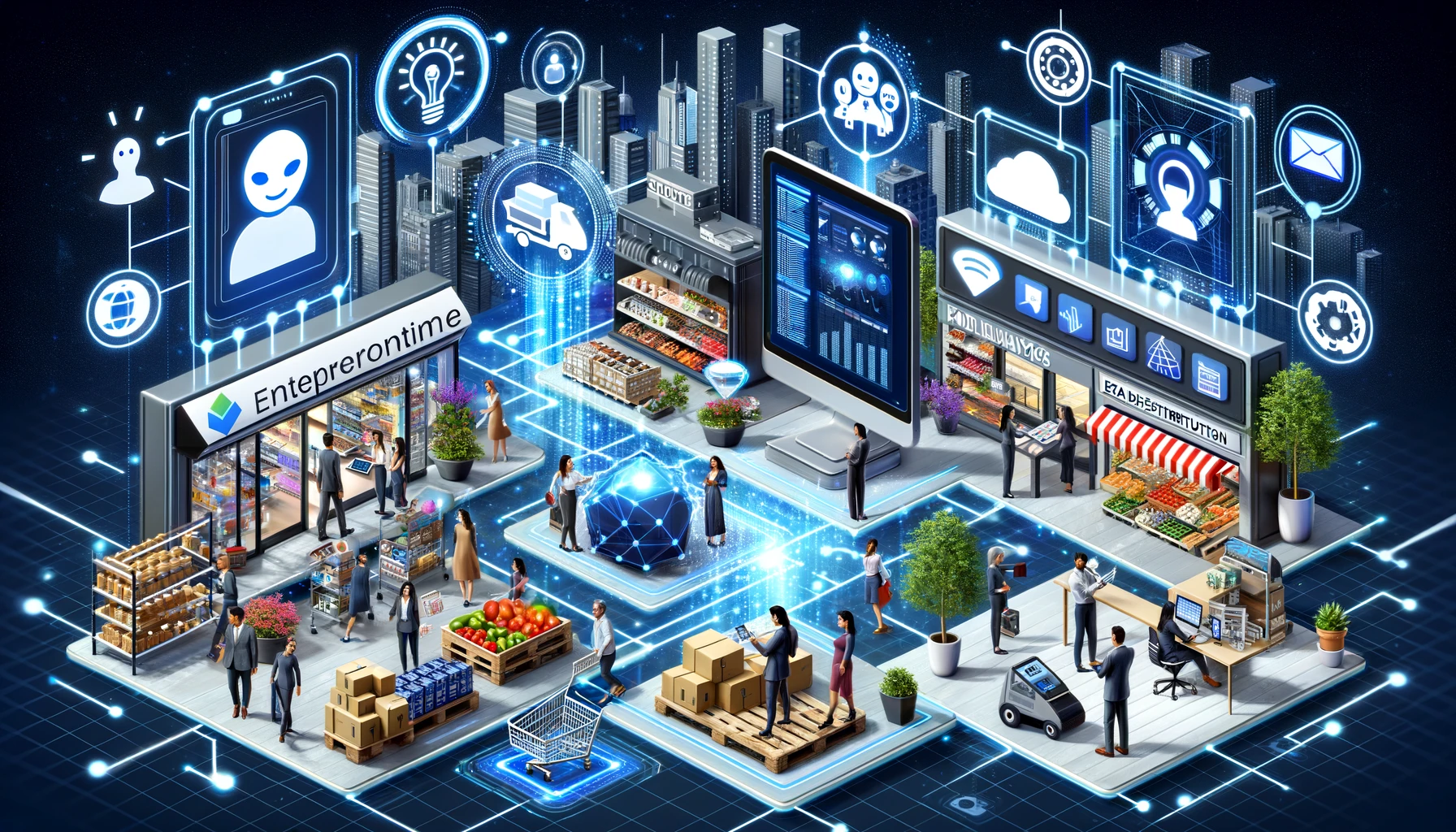In the rapidly evolving business landscape, the integration of artificial intelligence (AI) has moved from a novel innovation to a core component of strategic development. Whether you’re running an e-commerce platform, managing enterprise software, operating in the B2B or B2C sector, involved in food and nutrition, or providing services, AI can significantly alter your business trajectory. Here’s why adopting AI isn’t just an option but a necessity in today’s competitive market.
Enhancing E-commerce with AI
For e-commerce businesses, AI can revolutionize the customer experience. From personalized shopping recommendations to automated customer service via chatbots, AI enables a more streamlined, engaging consumer journey. Imagine AI tools that analyze customer behavior and adjust marketing strategies in real-time, or inventory management systems that predict demand trends to optimize stock levels. The result? Increased customer satisfaction and reduced operational costs.
Transforming Enterprise Software
In the realm of enterprise software, AI’s capability to process vast amounts of data can lead to more informed decision-making and greater operational efficiency. AI can automate routine tasks, such as data entry and analysis, freeing up human employees for more complex problem-solving tasks. Moreover, predictive analytics can forecast potential system downtimes or bottlenecks, ensuring smoother operational flows.
Boosting B2C Relationships
Businesses operating directly with consumers (B2C) can leverage AI for deeper customer insights and improved engagement strategies. AI-driven data analysis tools can uncover patterns in customer preferences and behavior, leading to more effective marketing campaigns. Additionally, AI-enhanced CRM systems can facilitate more personalized customer interactions, building loyalty and trust.
Innovating in Food and Nutrition
In the food and nutrition sector, AI can streamline supply chain logistics and enhance food safety. For example, AI can predict crop yields, optimize food distribution, and manage supply chains more efficiently to reduce waste. On the consumer side, AI can help personalize dietary recommendations, potentially revolutionizing how individuals manage their health and nutrition.
Streamlining Service-Based Businesses
For service-based businesses, AI can improve service delivery through smarter resource management and scheduling systems. AI applications can predict service demand peaks and allocate human resources accordingly, enhancing customer service without inflating operational costs.
Elevating B2B with AI Integration
In B2B environments, AI can transform client relationships and streamline operations. By incorporating AI-driven analytics, companies can gain deeper insights into business customer behavior and needs, leading to improved service offerings and optimized sales strategies. AI can also enhance supply chain management by predicting and managing inventory needs based on client demand patterns.
Revolutionizing Sales Operations
AI’s impact on sales is transformative, enabling a more dynamic, responsive, and personalized sales process. AI tools can analyze historical sales data and market trends to forecast sales outcomes, guide pricing strategies, and identify potential new markets or customer segments. Moreover, AI-powered CRM systems can automate follow-ups, schedule meetings, and provide sales teams with real-time insights about client engagement and potential upsell opportunities.
Off-the-Shelf AI Systems and Methodologies
When looking to integrate AI into existing business systems, several off-the-shelf solutions and methodologies can be employed cost-effectively, even with legacy systems. Here are a few recommended options:
1. IBM Watson: Known for its powerful AI and machine learning capabilities, IBM Watson offers various AI applications that can easily integrate with existing systems to enhance data analysis, customer service, and predictive analytics.
2. Microsoft Azure AI: This suite of AI services offers tools for AI model building and deployment that can work seamlessly with existing enterprise systems to enhance functionalities in areas like customer insights, natural language processing, and decision-making support.
3. Google Cloud AI: Providing a wide range of AI tools and services that are compatible with existing systems, Google Cloud AI helps businesses automate processes, understand data through deep analytics, and personalize customer interactions.
4. Salesforce Einstein: Perfect for sales-based operations, Salesforce Einstein is an AI layer integrated within the Salesforce platform that brings powerful AI capabilities to sales, marketing, and customer service, helping to personalize customer interactions, predict outcomes, and automate tasks.
5. RPA (Robotic Process Automation): For companies with extensive legacy systems, RPA offers a way to automate routine tasks without heavy IT infrastructure changes. Tools like UiPath and Blue Prism allow businesses to implement AI capabilities swiftly and cost-effectively.
6. API-based Integration: Many AI solutions offer APIs that allow for easy integration with existing systems. These can be used to add specific AI functionalities like chatbots, image recognition, and language translation without full system overhauls.
Conclusion
Now is the time to embrace AI. The technology not only offers immediate improvements in efficiency and cost management but also sets the foundation for future innovations. As AI continues to evolve, its integration today ensures you are prepared for the technologies of tomorrow. Ignoring this crucial evolution in business could mean missing out on significant growth opportunities and potentially jeopardizing your business’s viability in a technology-driven future.



Comments are closed